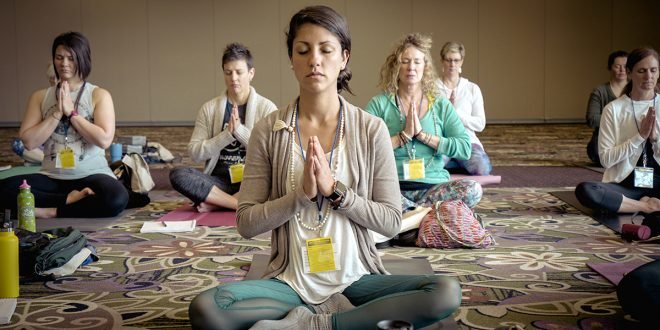A sound, phrase, prayer, object, visible image (visualized image), breath to raise awareness of the present moment in meditation or contemplation, promote relaxation, reduce stress and enhance personal or spiritual growth, Ritualized movements or focusing on consciousness. Meditation creates a feeling of deep relaxation and balance or equality. Sometimes illness often makes people very upset. And because of this, the patient gets clipped due to treatment. Therefore, while treating, the patient should be patient with a little patience as no disease is cured very quickly. It takes some time to recover.
According to Michael J. Baime, an essential form of complementary and alternative medicine, meditation allows one to experience intense emotions without losing strength. The result of emotional balance is a greater insight into one’s thoughts, feelings, and actions. Meditation also facilitates calmness, empathy, and a greater understanding of acceptance of self and others.
It is sometimes noted as a supplement to the medical treatment of the disease; In particular, it is an important complementary therapy for both the treatment and prevention of many stress-related conditions. Regular meditation can reduce the number of symptoms experienced by patients with a wide range of diseases and disorders. Based on clinical evidence as well as theory, attention is seen as an appropriate therapy for panic disorder, generalized anxiety disorder, substance dependence and abuse, ulcers, colitis, chronic pain, psoriasis, and dysthymic disorders. -A disorder in which a stable, depressed mood for at least two years. In addition, the focus is moderate hypertension (hypertension), cardiac arrest (heart attack) (cardiac arrest), atherosclerosis (hardening of the arteries), arthritis (including fibromyalgia) (fibromyalgia), Is a valuable adjuvant therapy for cancer, insomnia, migraine, and stroke.
It is a complementary therapy to control allergy and asthma as it reduces stress, which is prevalent in these circumstances. Additionally, attention can improve or reduce the symptoms of patients with neurological disorders such as Parkinson’s disease, multiple sclerosis, and epilepsy.
How does meditation help with mental health?
As the ancient yoga practice of meditation evolved into a series of aims and practices, from peace and balance to reaching other areas of consciousness to concentration of energy in group meditation, the supreme goal of samadhi.
Sahaja yoga meditation is regarded as mental mindfulness meditation and has been shown to correlate with particular brain and brain wave activity. Some studies have suggested that spontaneous attention involves ‘switching’ irrelevant brain networks for maintenance of focused internal attention and inhibition of inappropriate information. Some studies provide evidence that mindfulness practices are beneficial for brain’s self-regulation by increasing activity in the anterior cingulate cortex. The exercise relaxes the muscle groups in a period and then in a sequential pattern while they feel how they feel.
Different postures are performed in some meditation techniques. Seating, supreme, and standing are used. Popular in Buddhism, Jainism and Hinduism are absolute lotus, semi-lotus, Burmese, ciza and kneeling places. Meditation has sometimes done during walking, known as kinwin (kinhin,), or by performing a simple task known as samu (samu). The direction of Mental Meditation … all mental phenomena entering a field of practitioner awareness (so-called mindfulness meditation), or both at specific focal points and a particular object in the field (so-called concentration meditation).
Awareness can focus deeply. The second style, Open Monitoring O.M.)) involves non-reactive monitoring of the content of experience from moment to moment. Most ancient religions of the world have a tradition of using some type of prayer beads as a tool in devotional meditation. Each bead has counted once because a person recites a mantra until the person goes around the garland. The specific meditations of each religion may vary. 300 hour yoga teacher training in India is a great way to learn all the benefits that meditation has to offer.
Who should practice meditation?
Meditation has a profound effect on reducing stress, cortisol levels, and many health conditions related to the negative effects of stress. Meditation has a profound effect on reducing stress, cortisol levels, and many health conditions related to the negative effects of stress. Studies show that meditation gives people a sense of hope and empowerment when they feel otherwise overwhelmed in the face of serious illnesses. Meditation is used as a natural intervention for cancer patients and has shown consistent benefits, including improved psychological functioning, increased coping and well-being in cancer patients, improved quality of life, Physical improvement and health-related outcomes.
 Digital Scrapz Blogging For Knowledge
Digital Scrapz Blogging For Knowledge




